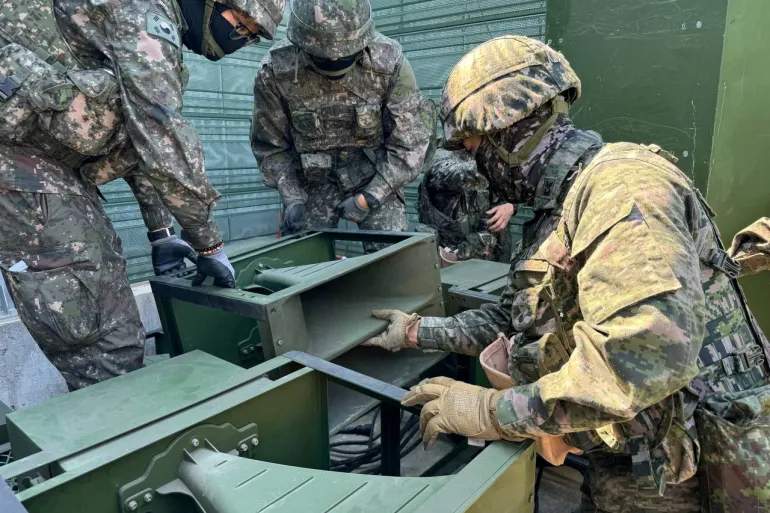In conciliatory gesture toward its neighbour, South Korean authorities have began removing loudspeakers blaring anti-North Korea broadcasts along the country’s border.
Seoul’s Ministry of National Defence made the announcement as the new government of President Lee Jae-myung seeks to ease tensions with Pyongyang.
The ministry said in a statement that it is a “practical measure” aimed at helping ease tensions with the North, “provided that such actions do not compromise the military’s state of readiness.”
The speakers had previously been used to blast anti-North Korean propaganda across the border, but the South’s new liberal government halted the broadcasts in June in a conciliatory gesture as it looks to rebuild trust and revive dialogue with Pyongyang, which has largely cut off cooperation with the South in recent years

Lee Kyung-ho, spokesman of South Korea’s Defence Ministry, told reporters, “Starting today, the military has begun removing the loudspeakers.”
He added that all loudspeakers set up along the border will be dismantled by the end of the week but did not disclose the exact number that would be removed.
He didn’t share specific details on how the removed loudspeakers will be stored or whether they could be quickly redeployed to the border if tensions flare again between the Koreas.
He also disclosed that there were no discussions between the two militaries ahead of the South’s decision to remove the speakers.
President Lee, recently elected after his predecessor was impeached over an abortive martial law declaration, had ordered the military to stop the broadcasts in a bid to “restore trust.”
The South’s previous conservative government resumed the daily loudspeaker broadcasts in June last year following a yearslong pause in retaliation for North Korea flying trash-filled balloons toward the South in a psychological warfare campaign.
The speakers blasted propaganda messages and K-pop songs, a playlist clearly designed to strike a nerve in Pyongyang, where Kim Jong Un’s government has been intensifying a campaign to eliminate the influence of South Korean pop culture and language among the population in a bid to strengthen his family’s dynastic rule.
The Cold War-style psychological warfare campaigns further heightened tensions already inflamed by North Korea’s advancing nuclear program and South Korean efforts to expand joint military exercises with the United States and their trilateral security cooperation with Japan.
Relations between the two Koreas had been at one of their lowest points in years, with Seoul taking a hard line towards Pyongyang, which has drawn ever closer to Moscow in the wake of Russia’s full-scale invasion of Ukraine.
Shortly after he took office in June, Lee’s administration switched off propaganda broadcasts criticising the North Korean regime as it looks to revive stalled dialogue with its neighbour.
Lee promised to improve relations with North Korea and reduce tensions on the Korean Peninsula.
Lee has said that he would seek talks with North Korea without conditions, following a deep freeze under his predecessor.
South Korea’s Overtures Rebuffed
Despite his diplomatic overtures, North Korea has rejected pursuing dialogue with South Korea.
Kim Yo Jong, sister of North Korean leader Kim Jong Un, said last week, using the acronym for South Korea’s official name, Republic of Korea, “If the ROK… expected that it could reverse all the results it had made with a few sentimental words, nothing is [a] more serious miscalculation…”
The countries remain technically at war because the 1950-53 Korean war ended in an armistice, not a peace treaty, and relations have deteriorated in the last few years.
North Korea, which is extremely sensitive to any outside criticism of its authoritarian leadership and its third-generation ruler, Kim Jong Un, didn’t immediately comment on the South Korean step.
READ ALSO: Political Price Controls Threaten Ghana’s TV Market Amid Pay-TV Pricing Issues



















